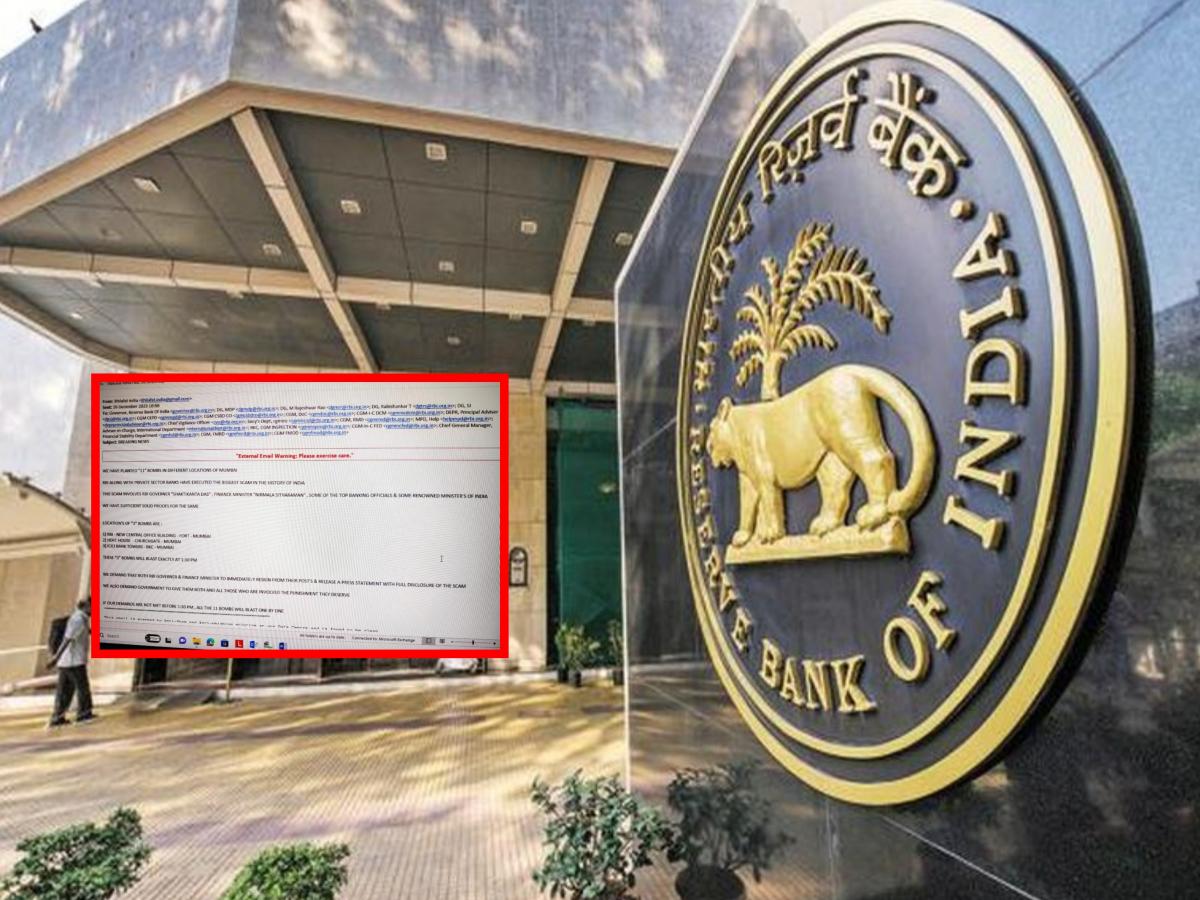RBI’s Alarming 2nd Bomb Threat Sparks Urgent Security Action
Russian-Language Email Threat to RBI Sparks Investigations; Raising Concerns Over Financial Security

On December 13, 2024, the Reserve Bank of India (RBI) received a bomb threat by email in Russian aimed at its headquarters in Mumbai. It is the second bomb threat made against the RBI within a month. The first bomb threat was made against the RBI in late November, and it had already generated fears over the security measures regarding India’s major financial institutions. With this newest threat, law enforcement agencies have responded promptly. They are conducting investigations on these threats to determine their authenticity.
Details of the Threat
According to reports from RBI, the threat came as an explosion warning through a Russian-worded email whose message called for the sender’s intention “to blow up” the whole campus of a Mumbai bank. While there is no confirmed news about the very nature of the threat itself, in what way it was sourced, through what motivation were well-crafted words, and it has language generally foreign to any Indian. Hence, international features raised queries about the possibility of foreign linkages.
As a response, police have started an investigation and filed a case at Mata Ramabai Marg Police Station, Mumbai. Digital footprints have been analyzed on the email so the mail authorities can determine the sender. The use of VPN to cover the identity is also under scanner. Further, law enforcement agencies are collaborating with cyber experts and forensic teams to trace the source of the email. However, as of now, no physical threats or items have been found at the mail premises.

The Recurrence of Threats
This is the second bomb threat to the RBI, the first made on November 2024. Security measures were heightened on that occasion, but no explosives were found. Repeated bomb threats against such a critical institution do point to the infrastructure of India’s financial architecture and raise pertinent questions on the motive for the threat. Even while investigations are still on, bomb threats are not something new to India. More often than not, they are hoaxes, particularly if threatened against public institutions.
Regardless of that, though, a steady drumbeat of threats aimed at the RBI is reason to worry about dangers in the future. They generate mass hysteria that can impair trade at key installations like the RBI. With the RBI playing a significant role in India’s financial stability, it should take such threats seriously even though they may end up being nothing.
The Role of Cybersecurity
Bomb threats in emails are one of the more difficult challenges for investigators when emails are encrypted and come from spoofed accounts. This email is written in Russian, which makes it even more challenging. It doesn’t mean that the sender of these emails is a Russian citizen. Yet, it shows that this individual could have connected with the external world or tried to deceive the investigators. Once the investigation began, experts looked into the language content, structure, and technical aspects of the email.

India has worked hard over the last few years to develop its cybersecurity infrastructure. These kinds of incidents always succeed in reminding them of continuous improvement. The agencies likely collaborating with law enforcement include CERT-In (the Indian Computer Emergency Response Team). International cooperation with organizations like Interpol is significant if the investigation unfolds cross-border elements.
Implications for National Security
Since RBI is India’s central bank, it will surely face threats of this type, given that it is the foundation of the country’s financial system. Such repeated threats may make the public lose confidence in the system. Further, operational interruptions might destabilize the market, making citizens and businesses feel insecure.
Besides the immediate concern over public safety, such threats also siphon valuable resources from other critical areas of law enforcement and national security. No reports of harm have been heard yet, but the necessity for heightened security measures over time places a strain on law enforcement agencies that must investigate every credible threat.
Security Measures in Place
To counter these threats, the RBI has probably instituted several security measures on its campuses, including periphery security, increased checks on mail and parcels, and advanced surveillance systems for detecting unusual activity. Internal security protocols for the bank likely include cybersecurity tools for filtering and analyzing emails to identify threats. These measures safeguard the institution from the immediate danger posed by email but also indicate how much more vigilance is required in the face of continually evolving threats.
)
The threat of bombs has become frequent for the nation’s top institutions. Thus, there is a call for the country to invest heavily in strong and agile security systems. Financial institutions should have more robust cyber security infrastructures to reduce the risks posed by unknown cyber threats.
The Growing Threat Landscape in India
Such threats are not restricted to the RBI. In recent months, hoax bomb threats on schools, airports, and corporate offices have been a part of the Indian scene. Most of these have proved to be false alarms but certainly use up resources and stop working. Hoax threats create a climate of uncertainty as the public worries over the security of every ordinary space.
Bomb threats have become widespread in India. Consequently, the security organizations responsible for maintaining public safety are under more obligation. Whatever their motives, they strive to create fear and change people’s lives. Authorities have to remain vigilant and prepare for such events. Although such threats may cause unwarranted threats, their effects can be pervasive.
Russian Language: A Potential Diversion or a Clue?
The use of the Russian language in the threat-filled email generates a couple of questions: is there an email behind it to mislead the investigators? Or is it merely diverting attention from the root of the problem, or is it pointing to some connection between Russian actors/interests? Russia and India have relatively good diplomatic relationships, though. It is still too early to conclude, but investigators are expected to examine the linguistic and syntactical features of the email to deduce any clue. The police may also cooperate with international agencies, such as Interpol, to identify the source and motive of the threat.

Conclusion
The bomb threat against the Reserve Bank of India is one of the clearest examples of vulnerability that even some of the most secure national institutions face. No havoc was caused, but the implications extend beyond the immediate aftermath of security responses. Authorities must constantly strengthen their cyber security structure, with more international cooperation and public awareness preventing dangers of this kind. As the investigation unfolds details of this incident, public confidence in the safety of key institutions will be strictly watched. The RBI must maintain uninterrupted work to help ease the country’s financial system amid increased security concerns.




